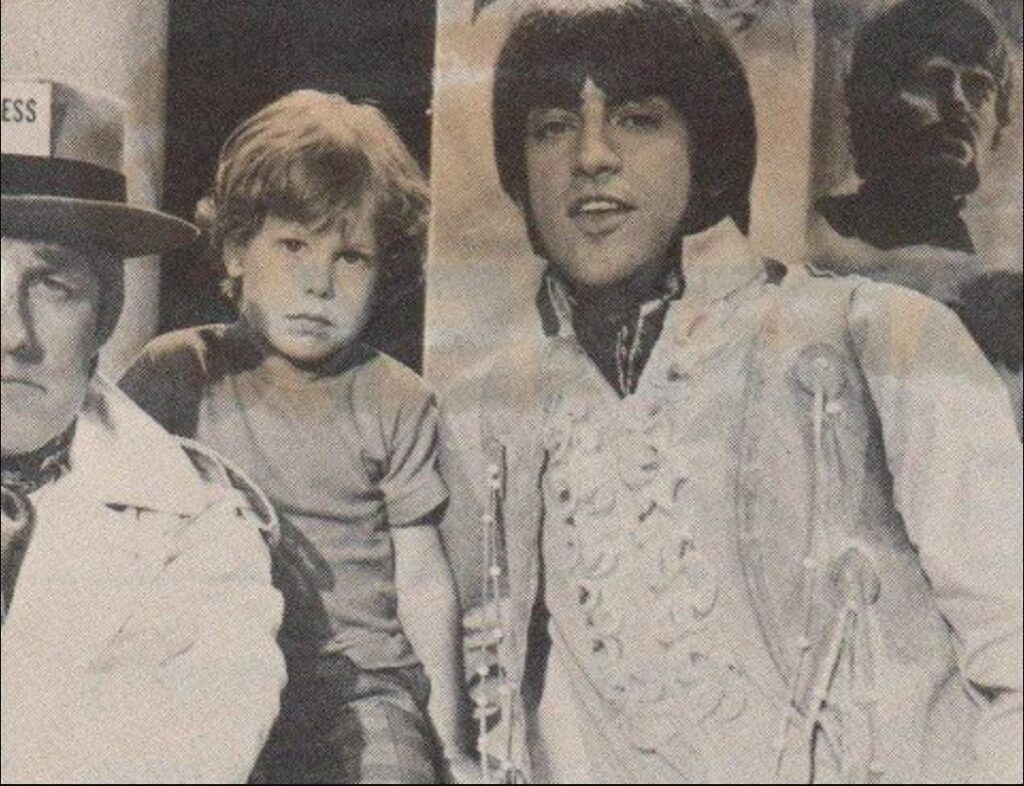
A Poignant Reflection on Love’s Fading Bloom and the Uncaring Passage of Time
Ah, now this takes me back. Way back. There are songs that merely tickle the ears, and then there are those that burrow deep into the heart, resonating with truths about life and love that only time truly reveals. Mark Lindsay’s 1970 solo single, “And the Grass Won’t Pay No Mind,” is precisely one of those. It’s a melancholic, yet beautifully honest, reflection that speaks volumes to those of us who’ve lived long enough to see love’s seasons come and go.
Let’s cast our minds back to the autumn of 1970. The air was thick with change, as the vibrant hues of the 1960s began to fade into something more introspective and, perhaps, a touch more jaded. It was in this atmosphere that “And the Grass Won’t Pay No Mind” quietly, yet profoundly, made its mark. While not a chart-topping smash for Lindsay, it still found a respectable place on the airwaves, reaching #44 on the U.S. Billboard Hot 100 and an impressive #5 on the U.S. Billboard Adult Contemporary chart. In Canada, it climbed to #34 on the RPM Top Singles chart and #14 on the RPM Adult Contemporary chart. Even across the pond, in Vancouver, it secured a notable #6 position on the CKLG charts, and received strong airplay in cities like Sioux Falls, St. Louis, Houston, and Seattle. For many of us, this wasn’t just another song; it was a whisper of understanding in a world that often felt loud and chaotic.
The story behind this particular gem is fascinating, as it’s a testament to the power of a well-crafted song transcending its original performer. “And the Grass Won’t Pay No Mind” was penned by none other than the legendary Neil Diamond. He first released it on his 1969 album, “Brother Love’s Travelling Salvation Show,” and it even made an appearance on his iconic live album, “Hot August Night.” But it was Mark Lindsay, the charismatic frontman of the wildly successful garage rock band Paul Revere & The Raiders, who truly brought a different dimension to the song. By 1970, Lindsay was carving out a successful solo career alongside his work with The Raiders, having already landed hits like “Arizona” and “Silver Bird.” His rendition of Diamond’s poignant composition, featured on his 1970 solo album “Silver Bird,” offered a smoother, more reflective pop sensibility that perfectly suited its lyrical depth. It’s a classic example of a cover version adding a new layer of emotion and reaching a different audience, much like how the familiar taste of a home-cooked meal can be transformed with a subtle change in seasoning.
The meaning of “And the Grass Won’t Pay No Mind” is laid bare in its simple, yet profound, title. It’s a meditation on loss, on the transient nature of human connection, and on the indifferent march of time. The lyrics paint a picture of a love that has withered, a relationship that has run its course, and the pain of that realization. The “grass” here is a metaphor for nature, for the world itself – it continues its cycle of growth and decay, utterly unconcerned with the heartbreaks of humanity. It highlights the stark contrast between our intense personal suffering and the impartial, unceasing flow of life around us. For anyone who has experienced the ache of a fading love, the song speaks volumes about the quiet despair when something once vibrant simply ceases to be, and the world keeps turning, oblivious to your shattered dreams.
Thinking back, Mark Lindsay was a defining voice of an era. With Paul Revere & The Raiders, he embodied the raw energy and rebellious spirit of the 1960s, with hits like “Kicks,” “Hungry,” and their timeless chart-topper, “Indian Reservation (The Lament of the Cherokee Reservation Indian).” They were everywhere, from “Where the Action Is” to “Happening ’68,” charismatic and cool. Yet, as a solo artist, Lindsay showcased a different facet of his talent – a more tender, nuanced approach to songwriting and interpretation. “And the Grass Won’t Pay No Mind” stands as a beautiful testament to this versatility, proving that beneath the flashy costumes and high-octane performances lay a sensitive artist capable of profound emotional expression.
This song, with its gentle melody and evocative lyrics, served as a quiet companion for many during those transitional years. It wasn’t a call to arms or a dancefloor anthem; it was a moment of shared vulnerability, a recognition that some hurts are universal and that the world, in its grand indifference, marches on regardless. It’s a song that invites you to sit, to reflect, and perhaps, to find a quiet kind of solace in its honest sorrow. And that, my dear friends, is the enduring power of Mark Lindsay’s “And the Grass Won’t Pay No Mind” – a timeless echo of human fragility in the face of an ever-moving world.